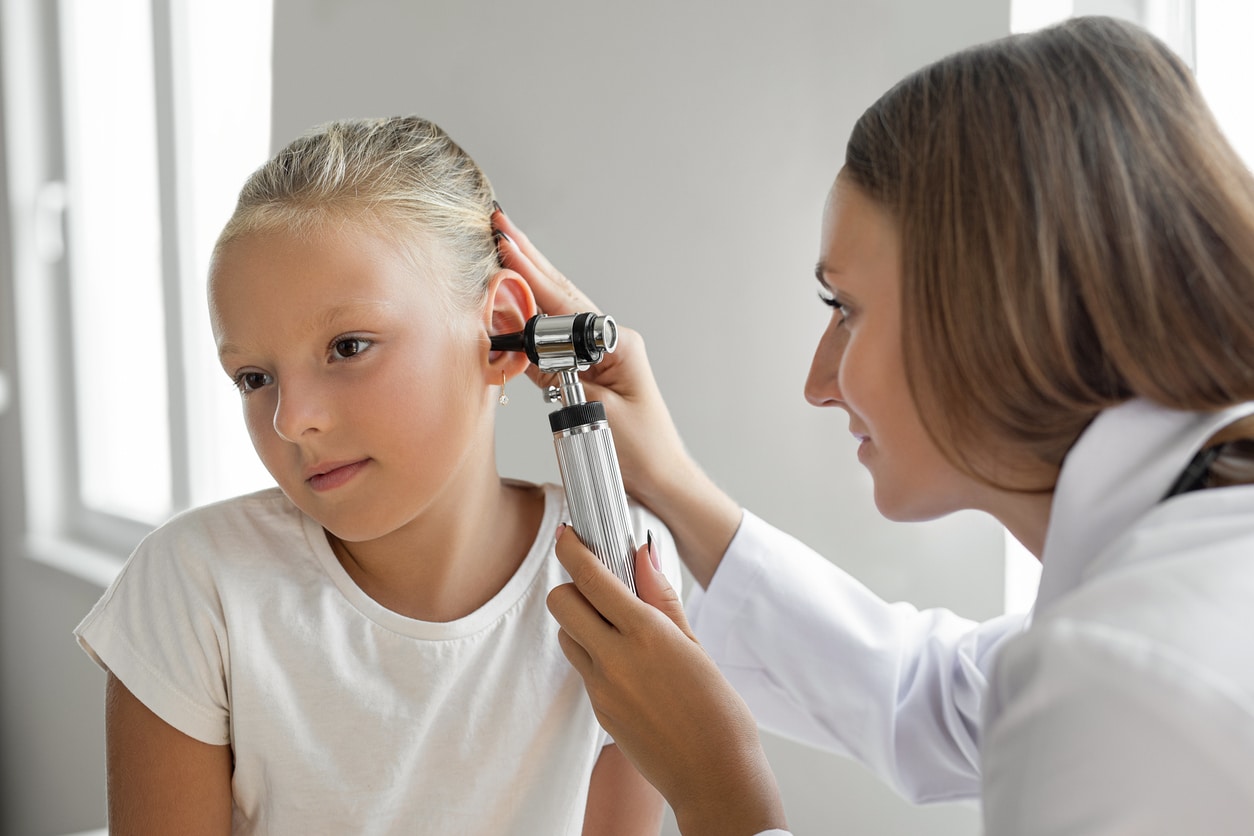Difficulty with discerning high-pitched sounds characterizes high-frequency hearing loss and is often caused by damage to the inner ear’s hair cells. High-frequency hearing loss isn’t age-specific and is prevalent among the elderly. Additionally, a particular study indicated that up to 14.2% of children who frequently use personal music players, demonstrated signs of high-frequency hearing loss.
For children, high-frequency hearing loss might go unnoticed as it subtly impacts their ability to grasp certain speech elements. This could lead to potential challenges in social interactions and perceived inattention.
Signs of High-Frequency Hearing Loss

There are some signs a child may be experiencing high-frequency hearing loss. Observable indications include:
- Trouble discerning specific sounds: High-frequency loss can impede the detection of consonant sounds, which are pivotal for understanding possessives, plurals and verb tenses, presenting a significant hurdle for children who lack the compensatory language skills that adults possess.
- Issues hearing amidst noise: Places with ambient sounds, such as classrooms or Fischer Park Playground, can pose a significant challenge for children with this type of hearing loss, hindering their ability to focus on specific auditory inputs.
- Exhaustion after listening: The extra effort required to listen can leave children with high-frequency hearing loss feeling fatigued. Children could need a rest period between school and starting other activities.
Speech delays may be a consequence of high-frequency hearing loss in children, but a hearing examination can confirm the condition. It’s vital for children to have regular hearing screenings.
Support both at home and in educational settings is crucial following a diagnosis. Support strategies for children with high-frequency hearing loss include:
- Regular hearing monitoring and protective measures against loud environments. This includes limiting the use of headphones and utilizing ear protection during high-noise activities.
- Encouraging the child to request repetition if necessary.
- Evaluation and, if warranted, therapy for speech and language to support proper linguistic development.
- Coaching the child to maintain eye contact with speakers and ensuring their attention before initiating conversation. Avoid shouting from other rooms to communicate.
- Minimizing extraneous noise sources during conversations to facilitate clearer communication.
Children who have high-frequency hearing loss might benefit significantly from hearing aids, which can amplify speech frequencies, thereby improving their educational and social experiences. Consulting with a hearing specialist is an excellent initial step to explore suitable treatment options.
For more insights into maintaining healthy hearing for both adults and children, book an appointment with The ENT Center of New Braunfels today.